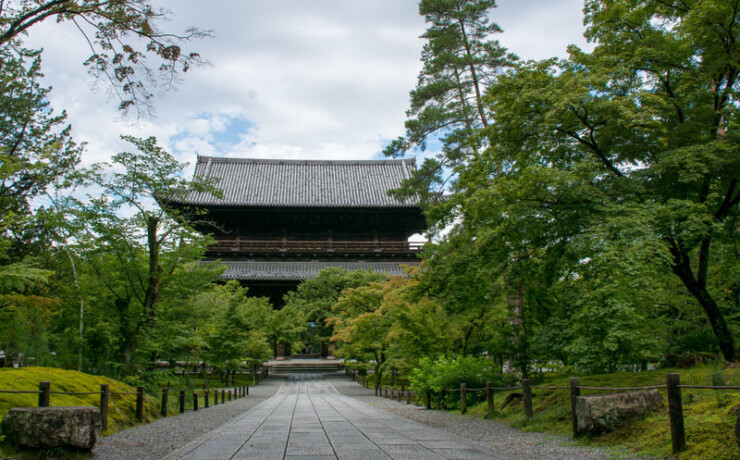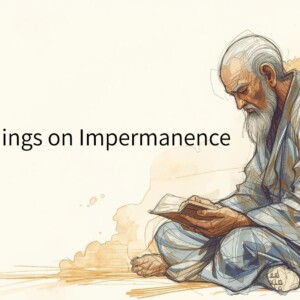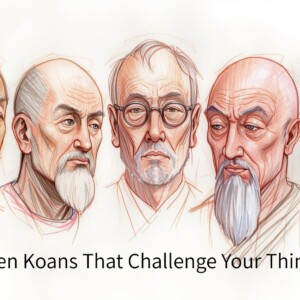
What Zen Masters Teach About Death: Meeting the End with Clarity and Compassion
Death is one of the few certainties of life, yet it remains one of the most avoided topics in modern culture. In contrast, Zen masters teach about death not with fear or denial, but with deep clarity, presence, and often even humor. In the Zen tradition, death is not the end—it is part of the great unfolding, inseparable from life itself.
In this article, we explore what Zen masters teach about death, and how their wisdom can help us face mortality—our own and others’—with more peace, understanding, and grace.
Death in Zen: Not an Enemy, but a Teacher
While many fear death as a final, tragic event, Zen sees it as a natural, inevitable transition—a moment as sacred and ordinary as birth or breath. Zen does not romanticize or dramatize death. Instead, it invites us to look directly at impermanence and see it as a gateway to awakening.
“Life and death are of supreme importance. Time swiftly passes by and opportunity is lost. Let us awaken.” — Zen Monastic Evening Chant
What Do Zen Masters Teach About Death?
1. Death Is Not Separate from Life
In Zen, the teachings emphasize that life and death are not opposites—they are two aspects of the same reality. Just as inhaling leads naturally to exhaling, birth leads naturally to death.
“To accept death is to accept life completely.” — Shunryu Suzuki
When we embrace the inevitability of death, we begin to live more fully, more presently, and with fewer regrets.
2. Impermanence Is the Truth of All Things
Zen masters often speak of mujo—the truth that all conditioned things are impermanent. Flowers wither, seasons change, bodies age, and eventually die. Nothing remains fixed or permanent.
“This body is like a dew drop on the grass, a flash of lightning in a summer cloud.” — Dōgen Zenji
Understanding impermanence helps us let go of attachment and appreciate what is here, now.
3. Let Go of the Fear of the Unknown
Fear of death often arises from the unknown: What happens after? What will it feel like? Zen doesn’t offer concrete answers. Instead, it encourages us to drop the need to know and meet death the same way we meet life—with open awareness and no clinging.
“Don’t know.” — Zen Master Seung Sahn
This “don’t know mind” isn’t ignorance—it’s radical acceptance of the mystery.
4. Die Before You Die
A powerful Zen teaching is to “die before you die,” meaning: let go of ego, attachment, and illusion now, while you are still alive. This inner death brings liberation.
“When the ego dies, the true self shines.” — Zen Teaching
In this view, physical death is not to be feared—it is the final release of what we’ve already practiced letting go of.
5. Some Zen Masters Laugh at Death
Zen is famous for its paradoxes, and some masters met death with humor or poetic grace. Many wrote death poems—a final reflection of their mind at peace.
Example:
“Death is like the moon in the sky. It doesn’t disappear. It only changes form.” — Ryōkan
Others greeted their death with a simple bow or a smile, demonstrating a deep trust in the nature of things.
How Can We Apply Zen Teachings on Death in Daily Life?
-
Meditate on impermanence—observe change in your breath, body, and emotions.
-
Speak honestly about death with loved ones; don’t treat it as taboo.
-
Live more presently—what would you do today if you accepted death as certain and unpredictable?
-
Let go more easily—possessions, grudges, and expectations lose power when viewed through the lens of impermanence.
Final Thought: Death Is Not the End of Practice
What Zen masters teach about death is not only about dying well—it’s about living well. Facing death with awareness allows us to cherish life, forgive quickly, and love deeply.
In the quiet gaze of a Zen master, death is not frightening.
It is a mirror—reflecting life’s preciousness, fleetingness, and beauty.
So sit. Breathe. Smile.
And let each moment be your teacher—until the very last.
🌿 Want to go deeper into Zen and mindful living?
Explore ZEN for LIFE — a gentle guide to bringing presence, simplicity, and calm into your everyday routine.
Now available on Kindle.
#ZENforLIFE #MindfulLiving #EverydayZen










この記事へのコメントはありません。